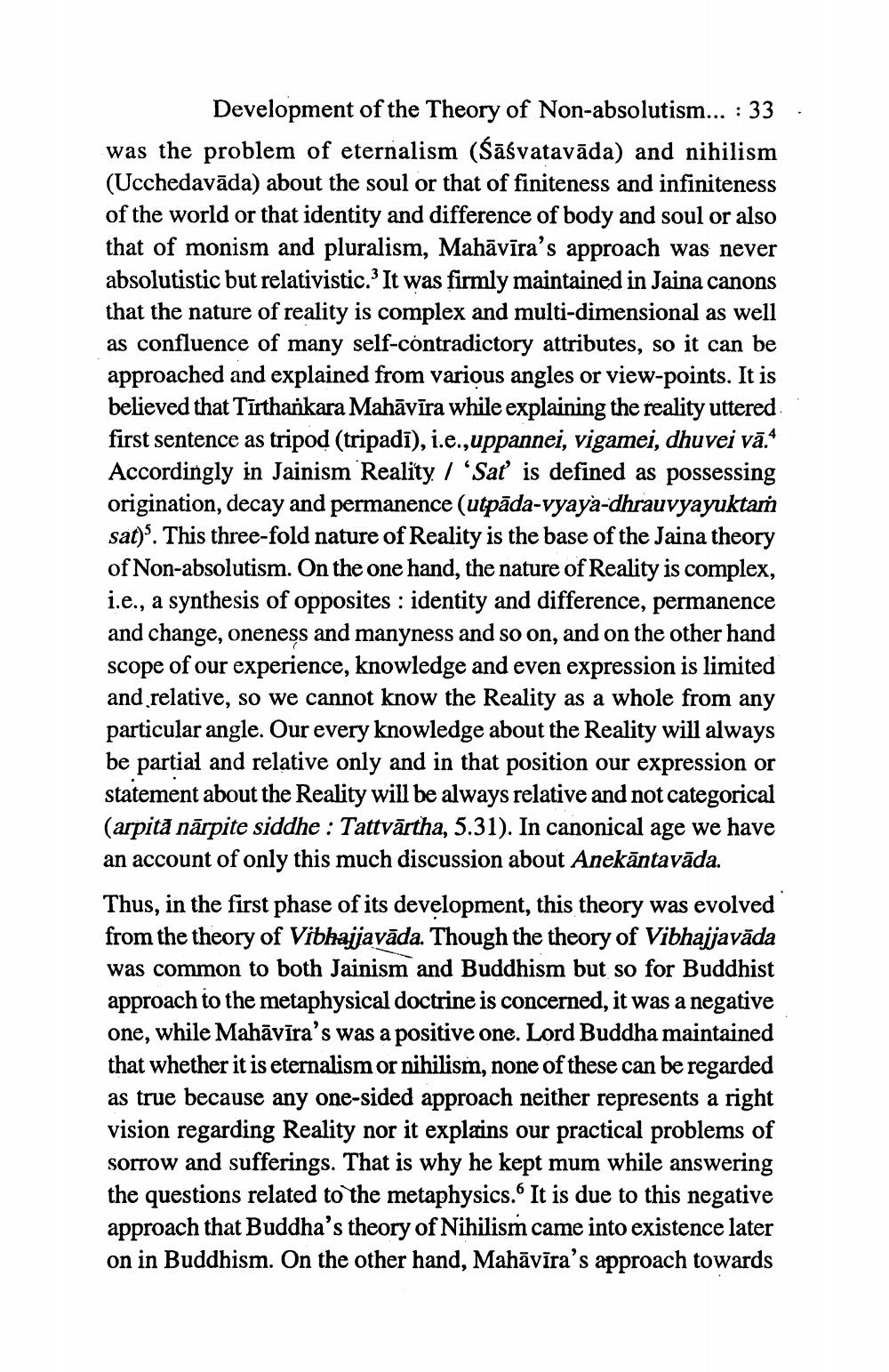________________
Development of the Theory of Non-absolutism... : 33 was the problem of eternalism (śāśvatavāda) and nihilism (Ucchedavāda) about the soul or that of finiteness and infiniteness of the world or that identity and difference of body and soul or also that of monism and pluralism, Mahāvīra's approach was never absolutistic but relativistic. It was firmly maintained in Jaina canons that the nature of reality is complex and multi-dimensional as well as confluence of many self-contradictory attributes, so it can be approached and explained from various angles or view-points. It is believed that Tīrthankara Mahāvīra while explaining the reality uttered first sentence as tripod (tripadī), i.e.,uppannei, vigamei, dhuvei vā.* Accordingly in Jainism Reality / 'Sať is defined as possessing origination, decay and permanence (utpāda-vyaya-dhrauvyayuktar sat)". This three-fold nature of Reality is the base of the Jaina theory of Non-absolutism. On the one hand, the nature of Reality is complex, i.e., a synthesis of opposites : identity and difference, permanence and change, oneness and manyness and so on, and on the other hand scope of our experience, knowledge and even expression is limited and relative, so we cannot know the Reality as a whole from any particular angle. Our every knowledge about the Reality will always be partial and relative only and in that position our expression or statement about the Reality will be always relative and not categorical (arpitā nārpite siddhe : Tattvārtha, 5.31). In canonical age we have an account of only this much discussion about Anekāntavāda. Thus, in the first phase of its development, this theory was evolved from the theory of Vibhajjavāda. Though the theory of Vibhajjavāda was common to both Jainism and Buddhism but so for Buddhist approach to the metaphysical doctrine is concerned, it was a negative one, while Mahāvīra's was a positive one. Lord Buddha maintained that whether it is eternalism or nihilism, none of these can be regarded as true because any one-sided approach neither represents a right vision regarding Reality nor it explains our practical problems of sorrow and sufferings. That is why he kept mum while answering the questions related to the metaphysics. It is due to this negative approach that Buddha's theory of Nihilism came into existence later on in Buddhism. On the other hand, Mahāvīra's approach towards




